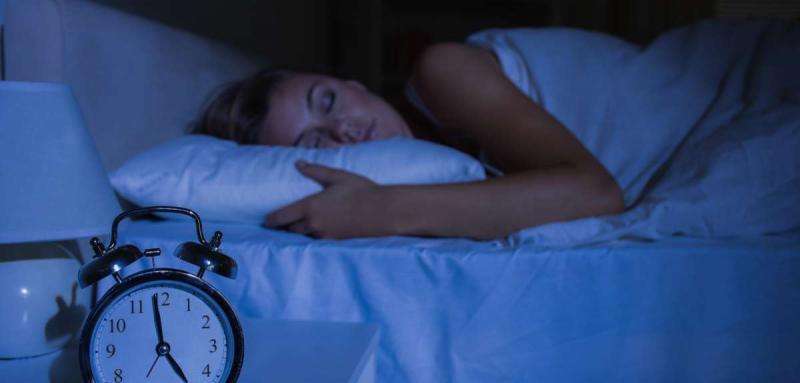Sleep deprivation could reduce intrusive memories of traumatic scenes

Sleep deprivation might prevent people from consolidating memories of experimental trauma, reducing their tendency to experience flashbacks, according to a new Oxford-led study.
The research, conducted in the Wellcome Trust-funded Sleep and Circadian Neuroscience Institute (SCNi) and published in the journal Sleep, involved showing volunteers emotional film clips and seeing how they responded after different amounts of sleep.
Dr Kate Porcheret, from the Nuffield Department of Clinical Neurosciences, said: 'We wanted to see what effect sleep deprivation would have on the development of intrusive memories – what in a clinical setting are called flashbacks. After showing participants a film of scenes with traumatic content, as an analogue to trauma, they were either kept in a sleep laboratory and deprived of sleep or sent home to have a normal night's sleep in their own bed.'
Each person then kept a diary in which they recorded any intrusive memories, however fleeting, recording as much information as possible so that the research team could check that the intrusive images were linked to the film.
Dr Katharina Wulff, from the SCNi, said: 'The sleep-deprived group experienced fewer intrusive memories than those who had been able to sleep normally. Both groups experienced more of these involuntary memories in the first two days and a reducing number in the following days. We know that sleep improves memory performance including emotional memory, but there may be a time when remembering in this way is unhelpful.'
The team behind the study, which was also funded by the MRC, stress that further research is needed. There is currently limited understanding of intrusive memories of emotional events as well as of the role of sleep in responding to real trauma, and real-life trauma cannot be directly replicated in an laboratory study.
Dr Porcheret added: 'Finding out more how sleep and trauma interact means we can ensure people are well cared for after a traumatic event. These are really important research questions to pursue further. For example, it is still common for patients to receive sedatives after a traumatic event to help them sleep, even though we already know that for some very traumatised people this may be the wrong approach. That is why we need more research in both experimental and clinical settings into how our response to psychological trauma is affected by sleep – and lack of sleep too.'

















